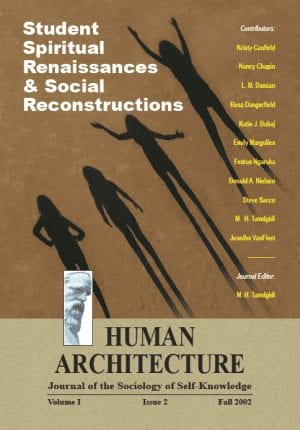Journal Article — Half Empty or Half Full?: Sociological Self-Explorations of An Aspiring Realist — by Ryan J. Canillas
$15.00
In this paper I use various sociological concepts and studies in order to understand why I tend to be more of a pessimist than an optimist. I explore various different aspects of my life through both micro- and macro-lenses in order to find the causes of my outlook on life.
Description
Abstract
In this paper I use various sociological concepts and studies in order to understand why I tend to be more of a pessimist than an optimist. I explore various different aspects of my life through both micro- and macro-lenses in order to find the causes of my outlook on life. Before this, I had never really looked at myself at a deep sociological level. I never really thought about how I am and why I am until the writing of this paper. My biggest worry is that I may not be able to change myself, let alone the world. I understand all of the concepts and ideas throughout my paper, but really how do I go about putting them in practice? I can write this paper preaching about how I should change my life, but is there a way of actually changing it, and society? This will be the ultimate subject of my study in the coming years, to see if I can take what I learned in this paper and apply it to the real world.
Recommended Citation
Canillas, Ryan J. 2011. “Half Empty or Half Full?: Sociological Self-Explorations of An Aspiring Realist.” Pp. 27-36 in Learning Transformations: Applied Sociological Imaginations from First Year Seminars and Beyond (Human Architecture: Journal of the Sociology of Self-Knowledge: Volume IX, Issue 2, 2011.) Belmont, MA: Okcir Press (an imprint of Ahead Publishing House).
The various editions of Learning Transformations: Applied Sociological Imaginations from First Year Seminars and Beyond can be ordered from the Okcir Store and are also available for ordering from all major online bookstores worldwide (such as Amazon, Barnes&Noble, and others).
Read the Above Publication Online
To read the above publication online, you need to be logged in as an OKCIR Library member with a valid access. In that case just click on the large PDF icon below to access the publication. Make sure you refresh your browser page after logging in.








